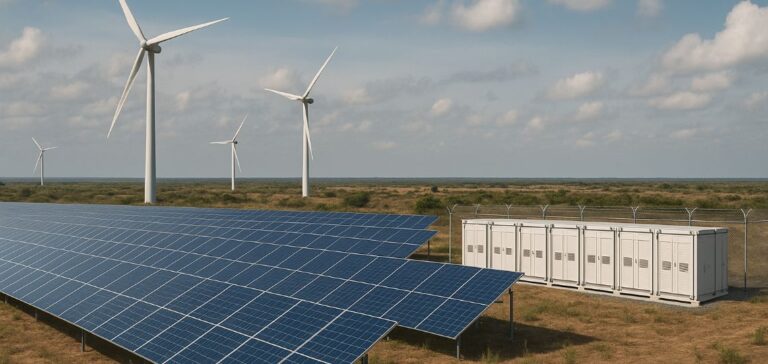China General Nuclear Power Group Brasil (CGN Brasil) and the government of the state of Piauí have signed a memorandum of understanding to create a multi-energy hub integrating several renewable electricity sources. The project involves an investment exceeding $578mn and is expected to reach an installed capacity of 1.4 gigawatts (GW), according to the statement issued by local authorities on May 12.
A strategic hub for CGN in northeastern Brazil
The signing ceremony took place in Teresina, attended by the Chief Executive Officer of CGN Brasil, Yao Zhigang, the President of China General Nuclear Energy International (CGNEI), Zhang Chaoqun, and the Governor of Piauí, Rafael Fonteles. The project will include photovoltaic solar power, onshore wind, battery storage systems and, in the medium term, concentrated solar power (CSP) facilities.
Already operating in the state, CGN Brasil currently manages two power plants and plans to begin construction of a third facility in 2025. These units will operate in an integrated manner, aiming to form an interconnected energy ecosystem.
Job creation and local economic impact
The signed agreement could generate more than 5,000 direct and indirect jobs, according to estimates from the regional government. Piauí seeks to strengthen its role in the industrial development linked to renewable energy, relying on structured international partnerships.
The Chinese group, through its Brazilian subsidiary, claims to have enabled the avoidance of more than 1.4 million tonnes of carbon dioxide per year through its existing facilities in the state. The region also receives approximately $482,000 annually in socio-environmental investments from the company, based on disclosed data.
Development prospects for CGN in the region
The planned energy hub aligns with CGN’s expansion strategy in Brazil, a country where demand for electricity infrastructure remains strong. The project does not yet have a precise implementation schedule, but the company confirms it is in the operational planning phase with local authorities.
“This kind of initiative allows the state to position itself as a national showcase for energy innovation,” said Governor Rafael Fonteles, quoted in the official government statement released on May 12.






















